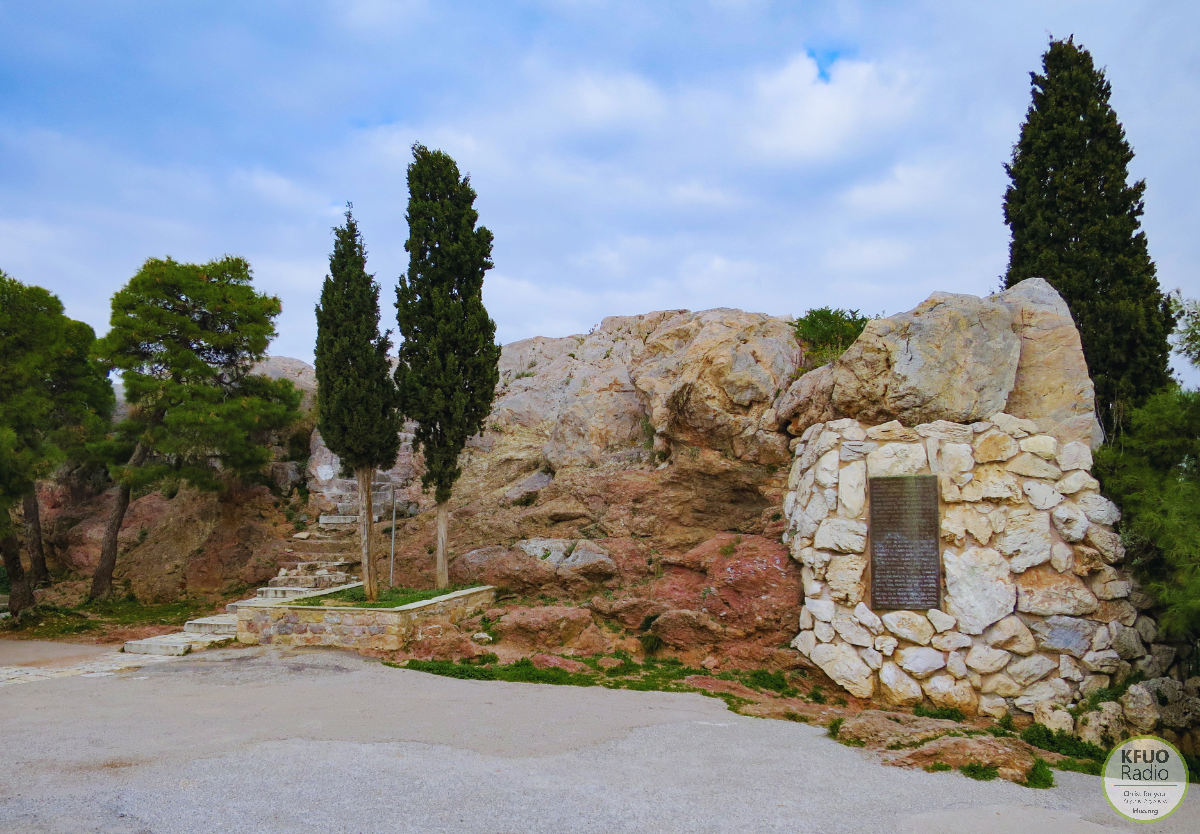Rev. David Vandercook, pastor at Trinity Lutheran Church in North Little Rock, AR and Shepherd of Peace Lutheran Church in Maumelle, AR, joins host Rev. Timothy Appel to study Acts 17:16-34.
The gross idolatry in Athens distressed Paul, yet he was undeterred from preaching the Gospel there both in the synagogue and in the marketplace. His preaching of Jesus and the resurrection caught the attention of the philosophers in Athens, who desired to hear more from Paul. The apostle went to the Areopagus to address the people of Athens there. In his sermon, Paul redirects their religiosity toward idols toward the true God. Paul clearly proclaims the true God as the Creator of all things. The people should have been able to recognize Him from creation, and they had discovered things about Him in part, but their ignorance remained. Paul proclaims that the time of ignorance has come to an end and repentance is needed ahead of the judgment God will bring through Jesus, who has been raised from the dead. The resurrection proves troublesome to many, though others want to hear more and some are brought to faith in Jesus.
“To the End of the Earth” is a mini-series on Sharper Iron that goes through the book of Acts. In his second volume, St. Luke records all the things that Jesus continued to do through the ministry of His Church. By the end of the book, the proclamation of the Lord’s Word that began in Jerusalem grows all the way to Rome. By God’s grace, even now, that same Word is proclaimed to us.
Sharper Iron, hosted by Rev. Timothy Appel, looks at the text of Holy Scripture both in its broad context and its narrow detail, all for the sake of proclaiming Christ crucified and risen for sinners. Two pastors engage with God’s Word to sharpen not only their own faith and knowledge, but the faith and knowledge of all who listen.
Sharper Iron is underwritten by Lutheran Church Extension Fund, where your investments help support the work of The Lutheran Church—Missouri Synod. Visit lcef.org.
Acts 17:16-34
Paul in Athens
16 Now while Paul was waiting for them at Athens, his spirit was provoked within him as he saw that the city was full of idols. 17 So he reasoned in the synagogue with the Jews and the devout persons, and in the marketplace every day with those who happened to be there. 18 Some of the Epicurean and Stoic philosophers also conversed with him. And some said, “What does this babbler wish to say?” Others said, “He seems to be a preacher of foreign divinities”—because he was preaching Jesus and the resurrection. 19 And they took him and brought him to the Areopagus, saying, “May we know what this new teaching is that you are presenting? 20 For you bring some strange things to our ears. We wish to know therefore what these things mean.” 21 Now all the Athenians and the foreigners who lived there would spend their time in nothing except telling or hearing something new.
Paul Addresses the Areopagus
22 So Paul, standing in the midst of the Areopagus, said: “Men of Athens, I perceive that in every way you are very religious. 23 For as I passed along and observed the objects of your worship, I found also an altar with this inscription: ‘To the unknown god.’ What therefore you worship as unknown, this I proclaim to you. 24 The God who made the world and everything in it, being Lord of heaven and earth, does not live in temples made by man,[a] 25 nor is he served by human hands, as though he needed anything, since he himself gives to all mankind life and breath and everything. 26 And he made from one man every nation of mankind to live on all the face of the earth, having determined allotted periods and the boundaries of their dwelling place, 27 that they should seek God, and perhaps feel their way toward him and find him. Yet he is actually not far from each one of us, 28 for
“‘In him we live and move and have our being’;[b]
as even some of your own poets have said,
“‘For we are indeed his offspring.’[c]
29 Being then God’s offspring, we ought not to think that the divine being is like gold or silver or stone, an image formed by the art and imagination of man. 30 The times of ignorance God overlooked, but now he commands all people everywhere to repent, 31 because he has fixed a day on which he will judge the world in righteousness by a man whom he has appointed; and of this he has given assurance to all by raising him from the dead.”
32 Now when they heard of the resurrection of the dead, some mocked. But others said, “We will hear you again about this.” 33 So Paul went out from their midst. 34 But some men joined him and believed, among whom also were Dionysius the Areopagite and a woman named Damaris and others with them.
Footnotes
- Acts 17:24 Greek made by hands
- Acts 17:28 Probably from Epimenides of Crete
- Acts 17:28 From Aratus’s poem “Phainomena”
English Standard Version (ESV) The Holy Bible, English Standard Version. ESV® Text Edition: 2016. Copyright © 2001 by Crossway Bibles, a publishing ministry of Good News Publishers. esv.org







